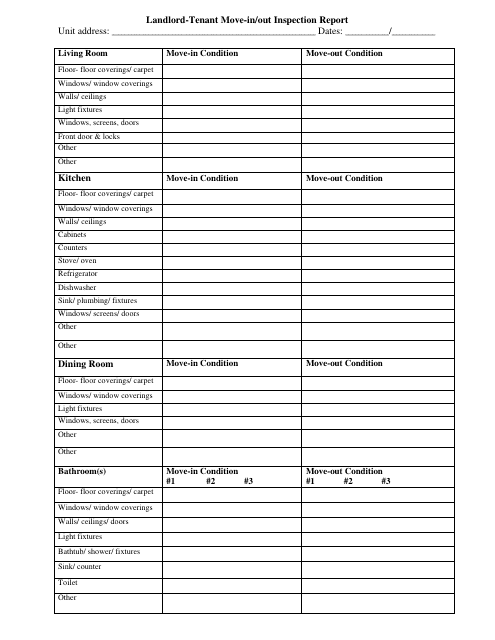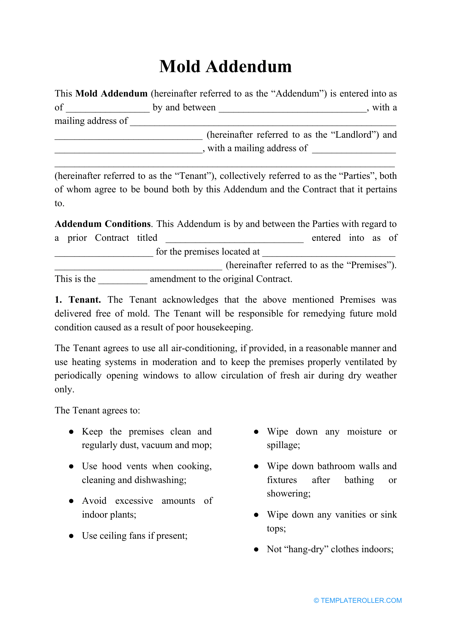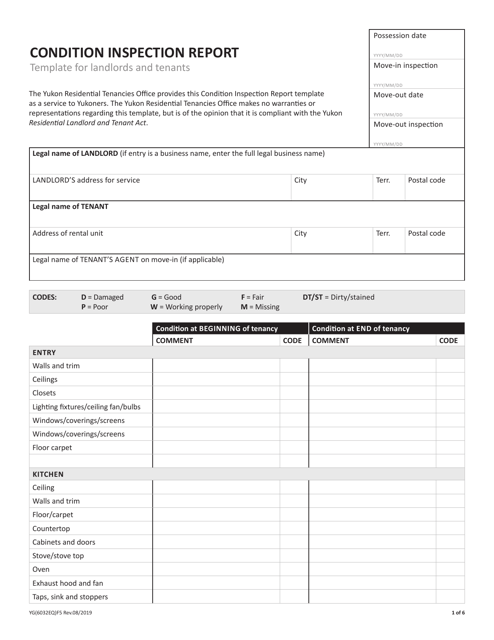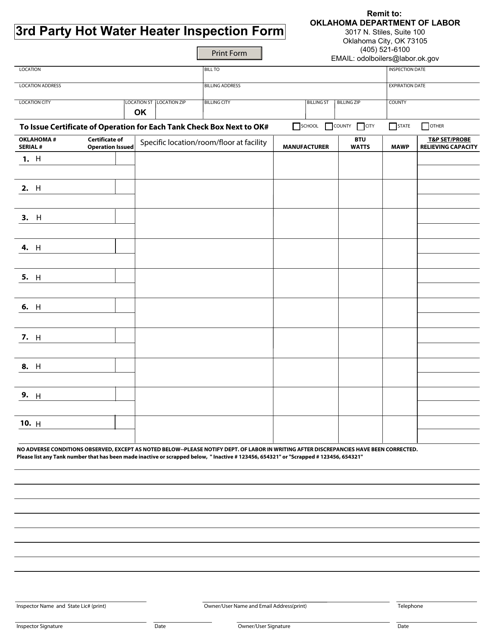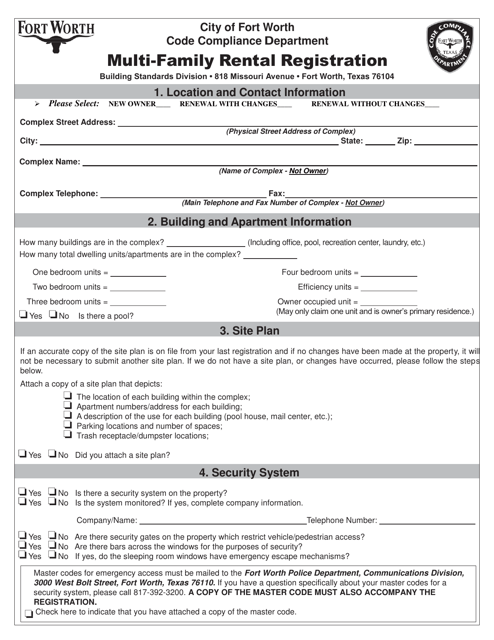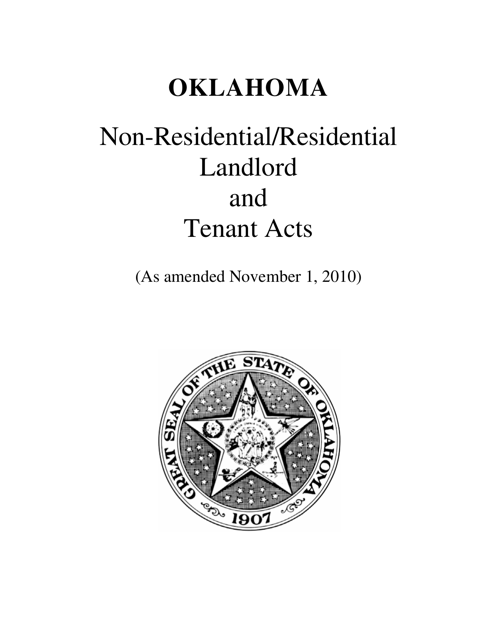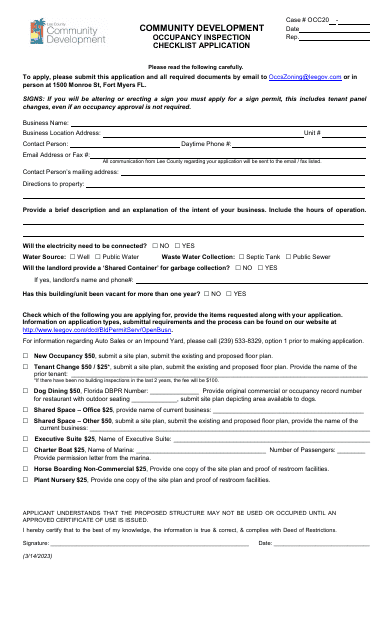Rental Property Regulations Templates
Are you a landlord or a tenant? Regardless of which side of the rental agreement you find yourself on, knowing and understanding the regulations and guidelines surrounding rental properties is crucial. These regulations, also referred to as rental property regulations, serve as a set of rules that both landlords and tenants must follow to ensure a fair and safe living environment.
Rental property regulations encompass a wide range of documents that outline the rights, responsibilities, and obligations of both landlords and tenants. These documents provide guidance on various aspects of renting, including property maintenance, lease agreements, inspections, and dispute resolution.
For instance, one important document commonly found in rental property regulations is the "Mold Addendum Template." This document outlines the procedures and responsibilities related to mold prevention and remediation in a rental property. It helps ensure a healthy and safe living environment for tenants while also providing guidelines for landlords to address any potential mold issues.
Another document that falls under rental property regulations is the "Form YG6032 Condition Inspection Report Template for Landlords and Tenants - Yukon, Canada." This document is specific to the Yukon, Canada and serves as a standardized form for landlords and tenants to record the condition of the rental property at the beginning and end of the tenancy. It helps to prevent disputes by establishing a clear record of the property's condition.
Furthermore, different cities and states may have their own unique rental property regulations. For example, the "Multi-Family Rental Registration - City of Fort Worth, Texas" is a document that landlords in Fort Worth, Texas must complete to register their rental properties. This document is part of the local regulations aimed at ensuring rental properties meet specific standards for safety and habitability.
In addition, rental property regulations can also include acts or statutes that govern the landlord-tenant relationship. One such example is the "Non-residential/Residential Landlord and Tenant Acts - Oklahoma." These acts outline the rights and responsibilities of both landlords and tenants in Oklahoma, serving as a legal framework for rental agreements and dispute resolution.
Lastly, rental property regulations may also include documents such as the "Occupancy Inspection Checklist Application - Lee County, Florida." This application form is used by landlords and property owners in Lee County, Florida, to request an occupancy inspection for their rental properties. The purpose of this inspection is to ensure that the property meets all the necessary health, safety, and zoning requirements before being rented out.
Whether you're a landlord looking to comply with legal requirements or a tenant wanting to understand your rights, rental property regulations are a valuable resource. Understanding and abiding by these regulations can help create a positive rental experience for both parties, ensuring a fair and harmonious living arrangement.
So, whether you call them rental property regulations, tenant-landlord guidelines, or lease compliance documents, the importance of understanding and following these regulations cannot be overstated. Let us guide you through the complex world of rental property regulations and help you navigate your rights and responsibilities as a landlord or tenant, making your rental experience a smooth and enjoyable one.
Documents:
7
This Form is used for conducting a thorough inspection of a rental property before a tenant moves in or moves out. It ensures that both the landlord and tenant agree on the condition of the property and any existing damages.
A Mold Addendum is a document attached to a Lease Agreement. It's needed for leasing a building or other property that has certain requirements for keeping it clean of mold.
This document is a template for landlords and tenants in Yukon, Canada to use when conducting a condition inspection of the rental property. It helps ensure both parties are on the same page regarding the condition of the property at the beginning and end of the tenancy.
This form is used for conducting a third-party inspection of hot water heaters in Oklahoma. It ensures that hot water heaters meet the required safety standards and regulations.
This form is used for registering multi-family rental properties in the City of Fort Worth, Texas. Property owners must complete this registration to comply with local rental regulations.

